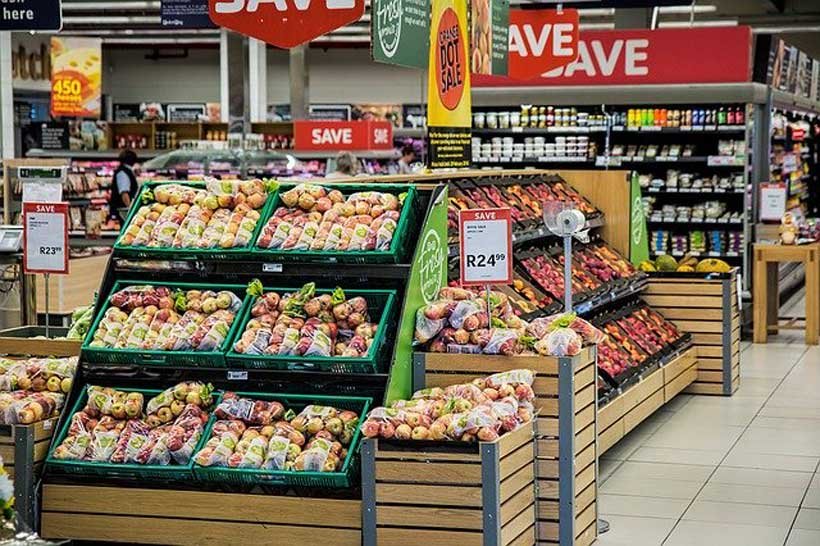South Africa is currently facing a sharp increase in food imports due to a number of complex and interrelated factors. Historically, South Africa has been known for its strong agriculture, with diverse agricultural activities producing enough food to feed the population and also allowing for export. The country’s climate, diverse ecosystem, and fertile land have allowed it to be largely self-sufficient in food production. However, due to a combination of factors such as changes in economic policy, environmental degradation, and population growth, agricultural output has declined significantly in recent decades.
The deregulation of South Africa’s agricultural sector in the early 1990s was aimed at opening the country’s markets to international trade and competition. However, cheaper imports and lower protective tariffs have made it difficult for local farmers to compete. This has a negative impact on the sustainability of local agriculture, especially for small and medium-sized farmers.
These challenges are further exacerbated by the effects of climate change. South Africa’s agricultural sector is highly vulnerable to environmental change, particularly as much of the agriculture is rain-fed and therefore susceptible to drought. Over the past decade, the country has experienced a prolonged drought that has particularly devastated yields of staple crops such as maize and wheat. This not only reduced food availability in the country but also increased food prices. As global weather patterns become increasingly unstable, the future of South African agriculture remains uncertain unless significant adaptation measures are taken.
In addition to climate and economic factors, South Africa’s rapidly growing population is putting increasing pressure on the food system. The population is estimated to reach 80 million by 2050, and food demand will continue to increase. However, the country’s ability to meet this growing demand through domestic production is shrinking, and its dependence on food imports is increasing. Urbanization is also contributing to the problem, with more arable land being repurposed for housing and infrastructure, leaving less land available for agriculture.
Economic instability exacerbates these problems. Rising input costs such as fuel and fertilizers are increasing the cost of farming and further reducing the profitability of local agriculture. Additionally, disruptions in global markets, such as the COVID-19 pandemic and geopolitical events such as the Ukraine war, have driven up the prices of imported goods and caused freight rates to rise sharply. The depreciation of the South African rand against major currencies has made food imports, which should theoretically stabilize domestic supplies, an expensive solution that contributes to inflation.
The cumulative impact of these challenges has significantly increased food insecurity across the country. Wealthier households can absorb rising food costs by relying on imported goods, but poorer households are increasingly vulnerable to hunger and malnutrition. South Africa once prided itself on being able to feed its people with local resources, but now faces the dual challenge of addressing immediate food security needs while ensuring long-term agricultural sustainability. facing. Without decisive intervention, these trends could further destabilize the economy, worsen poverty and deepen inequality. In addition to policy-driven challenges, South Africa’s agricultural sector is highly vulnerable to environmental factors. Erratic weather patterns caused by climate change are causing droughts and other extreme weather events, disrupting local agriculture. These disruptions reduce crop yields, reduce food security and increase the need for food imports. At the same time, disruptions to global markets such as the coronavirus pandemic and the war in Ukraine are exacerbating the situation by increasing the cost of agricultural inputs such as fuel and fertilizers and further increasing food prices.
As food imports increase, so too does the cost of food imports, due to higher freight costs and the depreciation of the South African rand. This contributes to rising food prices and inflation, which disproportionately impacts low-income households. Approximately 30 million South Africans currently experience food insecurity each month, raising concerns about malnutrition. The country is grappling with high rates of undernutrition and malnutrition-related diseases, including child stunting and lifestyle diseases such as diabetes and heart disease.
South Africa’s increased dependence on food imports could have significant long-term economic consequences. The outflow of foreign currency to pay for these imports worsens a country’s balance of payments, causes inflation, and reduces the purchasing power of households. Furthermore, if the country’s agricultural output continues to decline, rural areas that rely on agriculture may experience increased unemployment and population declines as they struggle to maintain their livelihoods. This could exacerbate urban poverty and increase pressure on government resources to provide social assistance and food assistance to a growing number of people.
To address these challenges, experts recommend that South Africa prioritize investment in the agricultural sector. This could include improving irrigation systems, investing in drought-tolerant crops, and increasing access to support for smallholder farmers. Expanding food sovereignty and supporting smallholder farmers are critical to stabilizing food supplies and increasing productivity.
To ensure long-term food security, it is important to prioritize sustainable agriculture and conserve arable land for agriculture. Governments will consider managing urban development to protect land for food production and transitioning to renewable energy to reduce greenhouse gas emissions and mitigate the impact of climate change on agriculture. There is a possibility that
In conclusion, reversing South Africa’s growing dependence on food imports requires a multifaceted approach that includes better agricultural policies, climate adaptation and support for local farmers. Strengthening the agricultural sector can improve food security, create jobs and reduce poverty, while ensuring more sustainable economic development in the long term. Without decisive action, continued dependence on imports risks deepening economic and social inequality in the country.

